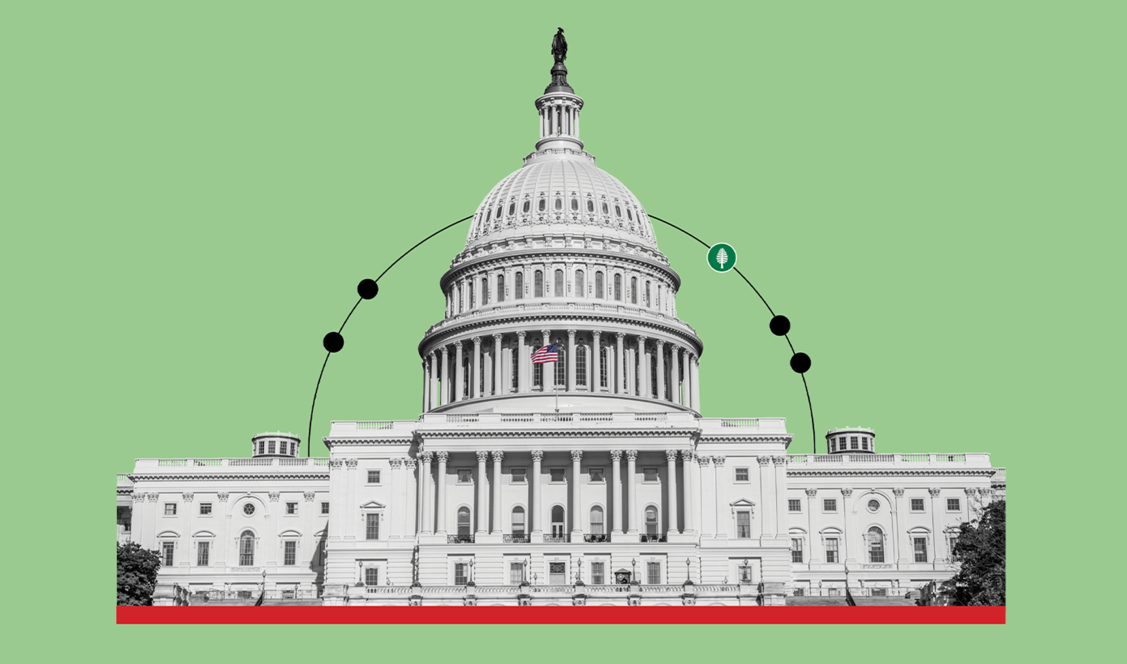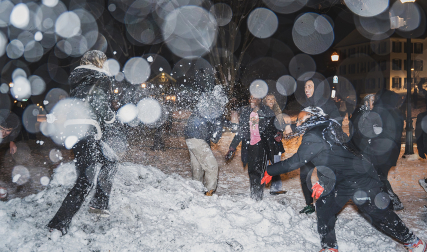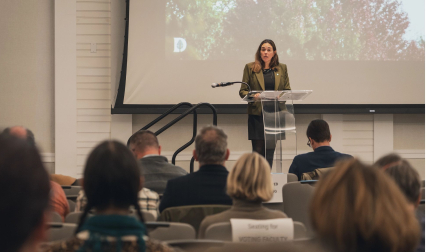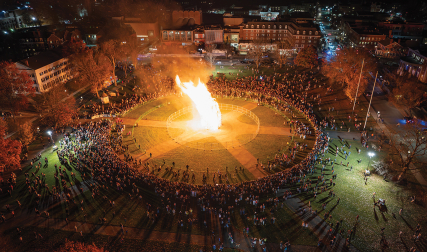Despite the unprecedented disruption in American higher education these days, a lot of things are going right for Dartmouth College. It remains the only Ivy League college not under federal investigation for antisemitism or Islamophobia, and it has faced relatively few research funding cuts, unlike Harvard and Columbia. Dartmouth just completed a record fundraising year, and President Sian Beilock is attracting favorable national press, including a recent Washington Post op-ed that called her “a green shoot in the higher ed desert.”
Even some of her sharpest critics on campus say they have seen improvement, especially in how the College has responded to student protests over the war in Gaza.
“I think we have seen a real shift during the past year,” says religion professor Christopher MacEvitt, who introduced a faculty censure of the president last year after she called the police in response to a student and faculty protest on the Green.
Behind the surge of good news is an institution that has stuck to its story about the need for civility and balance in political debate—while dramatically boosting its presence in Washington, D.C. Beilock has made six trips to the nation’s capital in 2025, meeting with members of the U.S. Congress as well as top officials at the Justice Department—an agency that has accused other schools of failing to protect Jewish students during pro-Palestinian demonstrations.
Beilock has told virtually all of them about the Dartmouth Dialogue initiative she launched after she came to Hanover in 2023, a program aimed at bringing diverse viewpoints to campus and teaching students how to cope in a polarized society. The project has brought high-profile speakers ranging from former U.S. Vice President Mike Pence to Democratic U.S. Sen. John Fetterman to campus. And conservative activist Charlie Kirk had been scheduled to debate left-wing online streamer Hasan Piker at Dartmouth on September 25, but he was murdered two weeks earlier. Now, as other universities face allegations from the Trump administration of fostering left-wing extremism, Dartmouth gets credit for fostering civil debate.
President Beilock spent a lot of time talking about…her desire to bring a diversity of voices and opinions to campus.”
“We’ve had our challenges, and we’re going to make mistakes, but we’re really trying to have our mission guide our actions,” says Justin Anderson, senior vice president for communications and government relations. “I think if we can continue to be guided by our mission, we will be in good shape.”
The Trump administration has spoken so favorably about Dartmouth that the College has had to fend off rumors its leaders have made some sort of backroom deal. After all, the White House has been in open political warfare with Harvard and extracted costly and humbling concessions from others, including Columbia and Brown. The rumors were fanned by Beilock’s appointment of Matthew Raymer ’03, the Republican National Committee’s former general counsel, as the College’s general counsel. “There’s no deal,” says Anderson. “It’s never even been discussed. I cannot be more clear.”
The College did face one setback: Congress hiked tax rates on college endowments, likely boosting Dartmouth’s costs by millions next year.
Ted Mitchell, president of the D.C.-based American Council on Education, notes that Dartmouth committed to creating open dialogue on campus before Hamas’ attack on Israel in October 2023 that killed 1,200 people. When students began protesting Israel’s military response, the College already had a program in the works to address divisive issues.
“Dartmouth was absolutely at the forefront of dealing with those issues in the right way,” Mitchell says. “We talk a lot about higher education being a bedrock of democracy. Well, in order to do that, you need to teach students how to behave in a way that is both civil and not oppositional.”
Until two years ago, Dartmouth was one of the few major research universities that didn’t have a government affairs office. Tucked away up near the White Mountains, College officials seemed to act as if national politics did not require their full-time attention, and they could focus on running the school. But Beilock saw an opportunity for Dartmouth to expand its research funding if it made federal relations a priority and appointed the College’s first vice president for government and community relations.
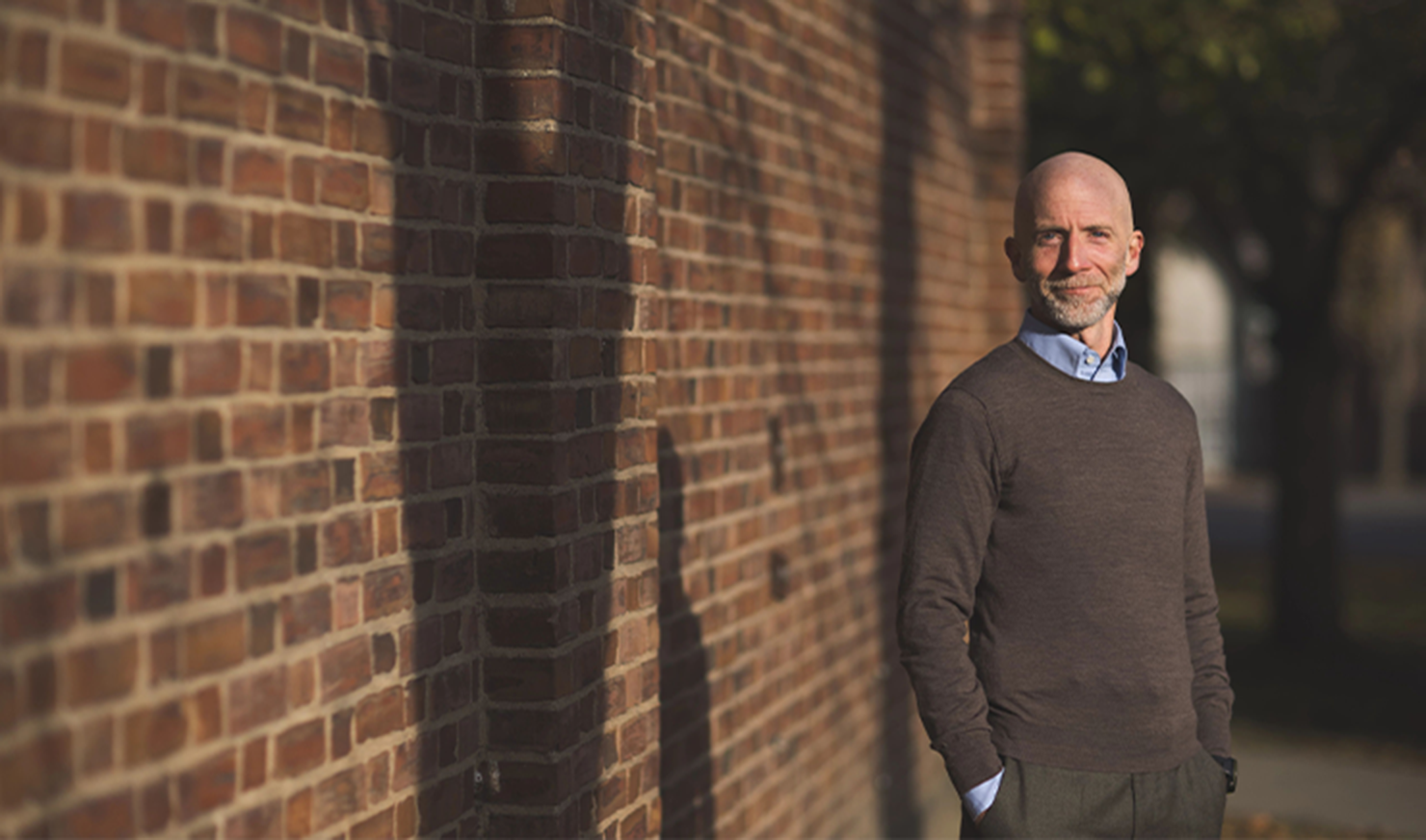
Just four months later, Hamas’ attack on Israel—and Israel’s invasion of Gaza—dramatically changed campus politics across the country, with the invasion spawning a protest movement in support of the Palestinians who live there. By December 2023, college presidents from Harvard, MIT, and Penn were grilled before a congressional committee for allegedly failing to protect Jewish students on campus. Within weeks of the hearing, the presidents of Harvard and Penn resigned amid criticism of their congressional appearances.
A low point for Dartmouth came on May 1, 2024, when student protesters set up five tents for a pro-Palestinian encampment on the Green, and Beilock called the Hanover police to intervene. Soon, officers from neighboring communities and about 20 state police in riot gear joined the police response, and 89 people were arrested, including MacEvitt. “I think a great deal of the concern among the faculty after May 1, 2024, was the speed with which the police were called and the massive display of force on the Green that night,” MacEvitt says.
Charges against virtually all protesters and bystanders arrested that night were eventually dropped, reduced to a violation, or put on hold. But many members of the faculty were outraged. Within weeks, they voted 183 to 163 to censure Beilock for her response. But the vote was only symbolic, as the College’s board of trustees expressed unanimous support for her.
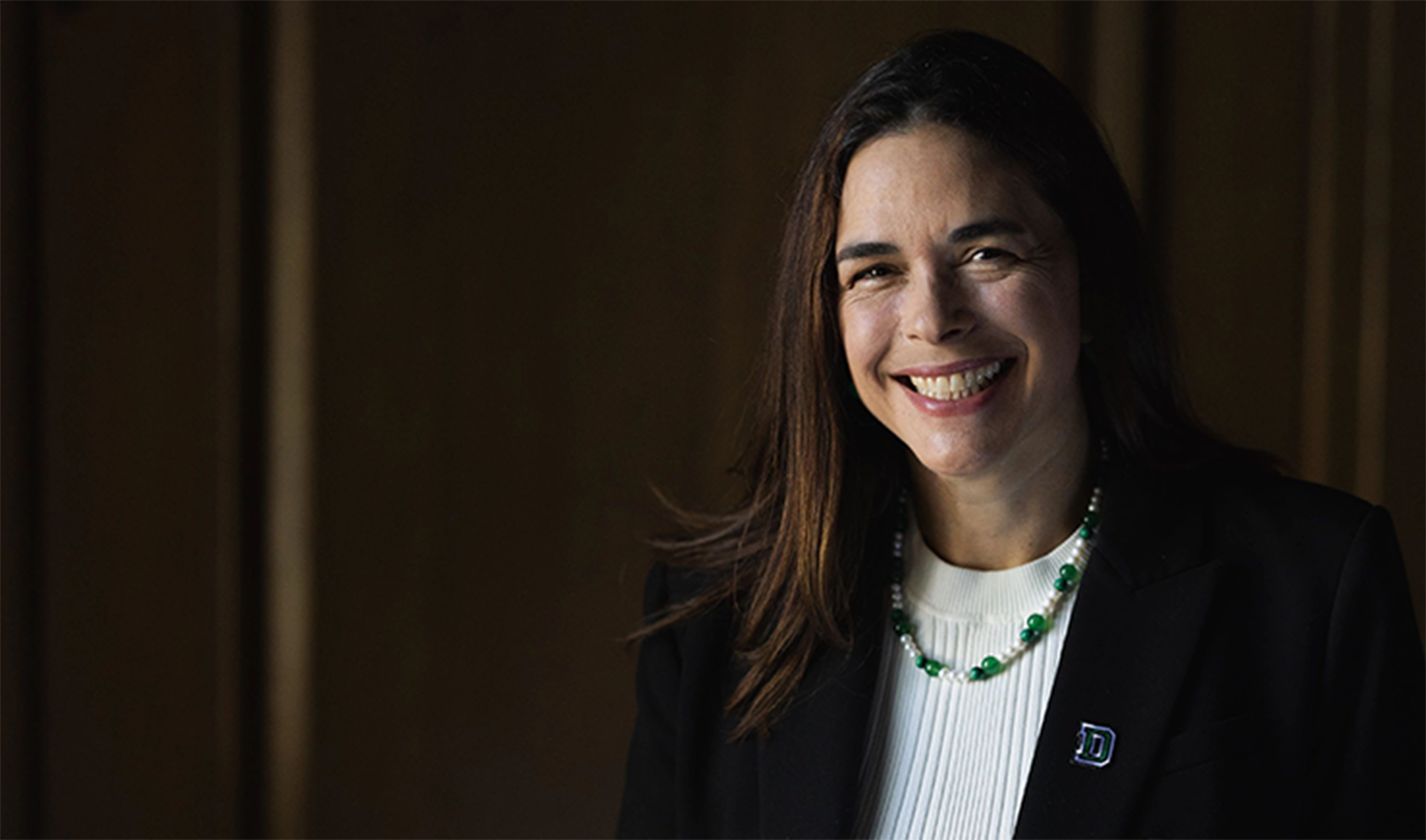
Anderson explains that Beilock decided to call police that night because she thought the protest was too much for Dartmouth security, but she had no control over how the police responded. “What she could control was whether or not to call the police,” he says.
Since then, student protesters have returned, setting up two tents on the Parkhurst Hall lawn on May 1, 2025, and occupying part of the President’s Office in Parkhurst on May 28. Neither time did Dartmouth call in the police.
“We have been pleased and impressed by how differently the administration has responded,” MacEvitt says. During the office takeover, “the administration faced a very challenging situation, and they, including the president, were clearly dedicated to de-escalating the situation.”
Meanwhile, Beilock ramped up D.C. lobbying efforts in the wake of President Trump’s re-election. In December 2024, Beilock named Anderson to lead government affairs in addition to running the communications office. Since then, both Beilock and Anderson have shuttled back and forth to Washington, meeting with New Hampshire’s congressional delegation as well as the “Dartmouth Caucus”—the five members of Congress who are alumni.
“President Beilock spent a lot of time talking about her priorities,” Anderson says, “and she spoke a lot about Dartmouth Dialogues and her desire to bring a diversity of voices and opinions to campus to engage in smart, interesting civil discourse.”
That approach appears to be working—and not just with Congress. Former Indiana Gov. Mitch Daniels, a conservative Republican, wrote in The Washington Post that Beilock “has charted a path worthy of emulation by her higher-ed peers.” Meanwhile, in a piece in The New Yorker, Rob Wolfe ’12 called Dartmouth “the Ivy League’s Switzerland” for staking out the middle ground.
Many—though not all—alumni are voting with their wallets in support of Beilock’s leadership. The College raised a record $512 million in the fiscal year that ended June 30. “Dartmouth alumni and friends are again demonstrating their profound commitment to our mission of research, teaching, and preparing students for responsible leadership,” Beilock said when she announced the results.
Editor’s note: Article published online September 2025; print version forthcoming in November/December 2025 issue
